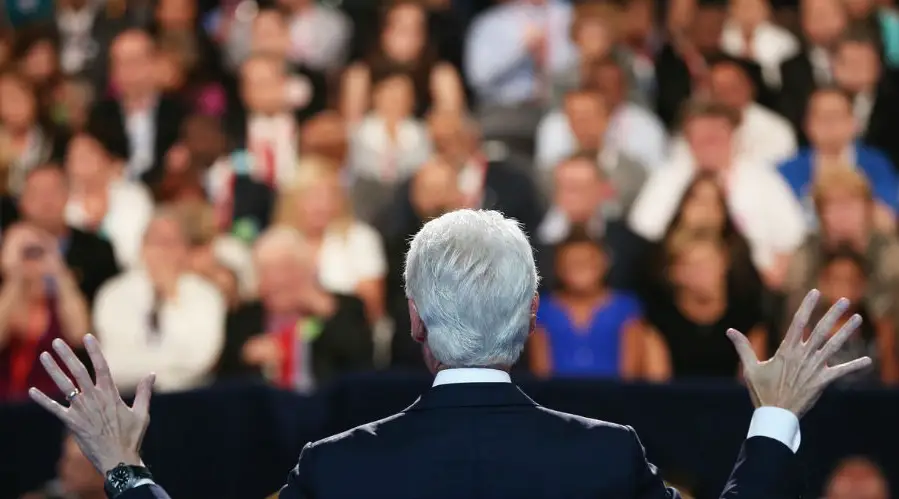The political landscape increasingly taking shape around the world is one of post-democracy —an ambiguous term describing an uncertain scenario marked, broadly speaking, by three distinct situations in which pluralism and the rule of law are at least postponed, if not outright sidelined. The first arises from the fact that democracy, as a system, carries within it the seeds of its own erosion. The second revolves around the relative success of certain aspects of authoritarian regimes. The third encompasses realities driven by elected leaders who promote projects of personal domination with widespread social acquiescence.
Each of these situations opens a problematic space in response to the challenges posed by the exponential digital revolution and its disruptive societal impact. They also reflect the historical difficulties faced by representative democracy. Compounding this are the frustrations people experience when confronting their problems and unmet demands. Corruption and the rising power of organized crime are especially damaging. Yet across all cases, there appears to be a common denominator: the individual characteristics of those in power seem increasingly irrelevant.
The number of people who engage in political activity —or in other words, for whom politics is a profession— is significant, although difficult to quantify due to definitional issues. However, it becomes more manageable when focusing on those occupying the highest political office. In the Americas, this position typically refers to the directly elected president, with the exception of Canada, which follows a parliamentary system.
An analysis of the political and professional backgrounds of these figures will be left for another discussion. Here, the focus is instead on how their policy performance aligns with their electoral promises, along with the tone and behavior of their public communication —particularly in terms of aggressiveness or adversarial rhetoric. Also relevant are their relationships with other branches of government and their own political party, when applicable.
Currently, four scenarios support the argument that the quality of politicians matters less and less —although defining what we mean by “quality” is itself a challenge. Still, a working definition might include the criteria mentioned above. This leads to a four-cell matrix where, as an exploratory exercise, four Latin American presidents who came to power through fully democratic processes can be situated:
Yamandú Orsi, president of Uruguay for six months, leads a fragmented parliamentary majority and a solid coalition. He maintains a respectful tone and behavior in a country accustomed to such political norms and known for its democratic maturity. Orsi’s policy effectiveness is acceptable, marked by strong popularity, strategic clarity, international standing, and early progress in health and education.
Bernardo Arévalo, president of Guatemala for 18 months, uses a calm, balanced tone and behaves respectfully. However, his effectiveness is limited due to harassment from the judiciary, a weak and minority position in Congress, and the country’s structural obstacles.
Javier Milei, president of Argentina for 20 months, behaves in grotesque ways and regularly uses insults in his public discourse. Though he operates independently of any party structure, his administration has made strides in macroeconomic stabilization and state downsizing, improving fiscal indicators. Still, these gains have come at a high social cost and his divisive style has exacerbated institutional tensions and yielded a mixed perception of effectiveness.
Gustavo Petro, president of Colombia for three years, is known for his aggressive communication style and erratic behavior, including unexplained absences and frequent tardiness at official events. Although Petro began his term with ambitious reforms, their effectiveness has been hampered by weak institutional management, a clear legislative minority, a fragile party base, major scandals, and a growing fiscal crisis. Despite some macroeconomic improvements, the country continues to face serious issues with security, public trust, and policy implementation.
Ultimately, one additional element increasingly determines today’s political life but often goes unnoticed: the role of the political advisor. Consultants are gaining influence, even as their presence is frequently downplayed, making the intrinsic quality of political leaders less and less relevant. Take, for example, Mike Donilon, chief political advisor to former U.S. President Joe Biden. On July 31, he told congressional investigators that he had been paid $4 million for his work on Biden’s 2024 re-election campaign and could have earned another $4 million had Biden won. According to Axios, Donilon told investigators that “every president ages over the four years of a presidency and President Biden did as well, but he also continued to grow stronger and wiser as a leader as a result of being tested by some of the most difficult challenges any president has ever faced.” A whitewashing of the candidate—at a very high cost to U.S. politics, but a highly profitable deal for the consultant.













